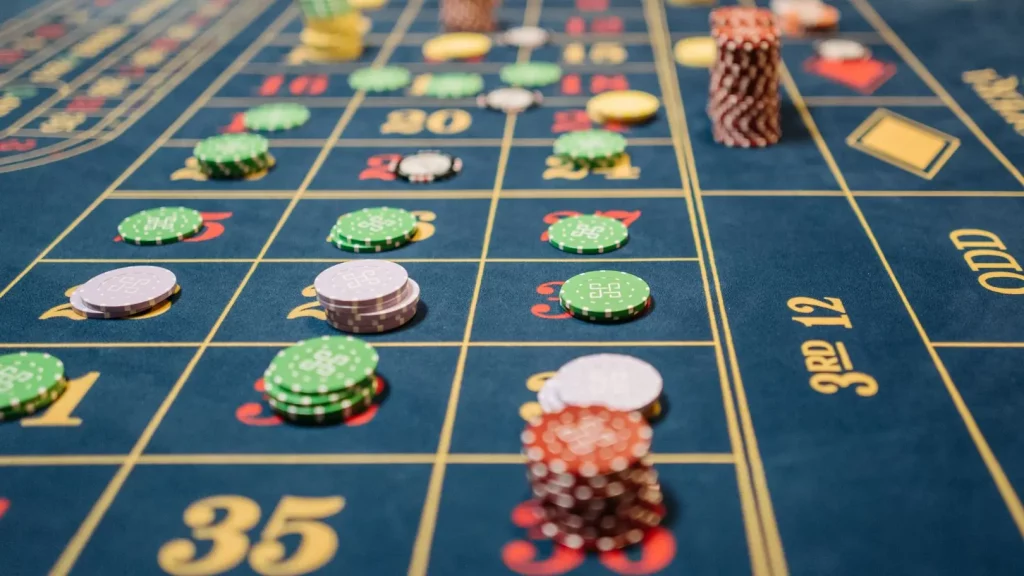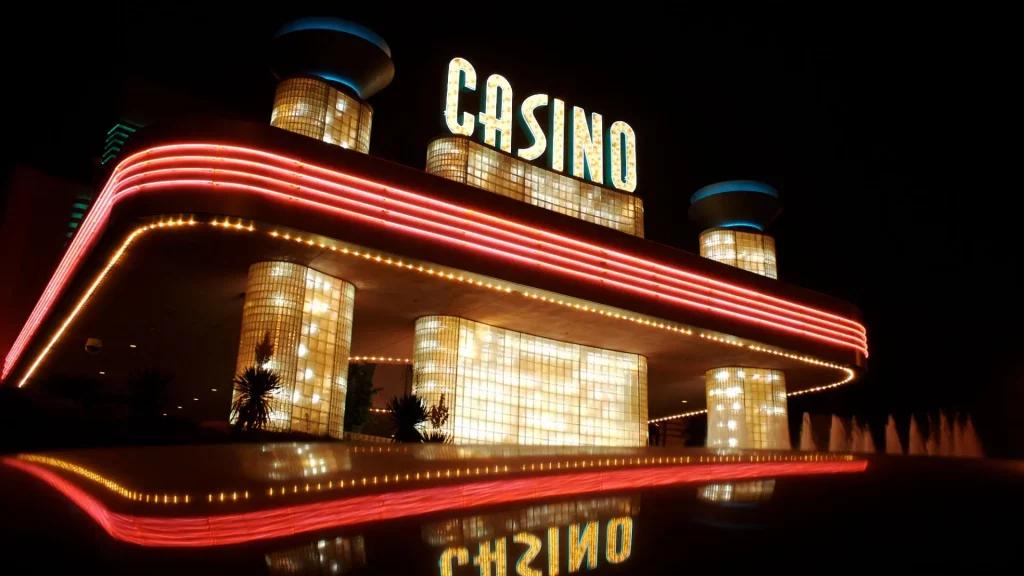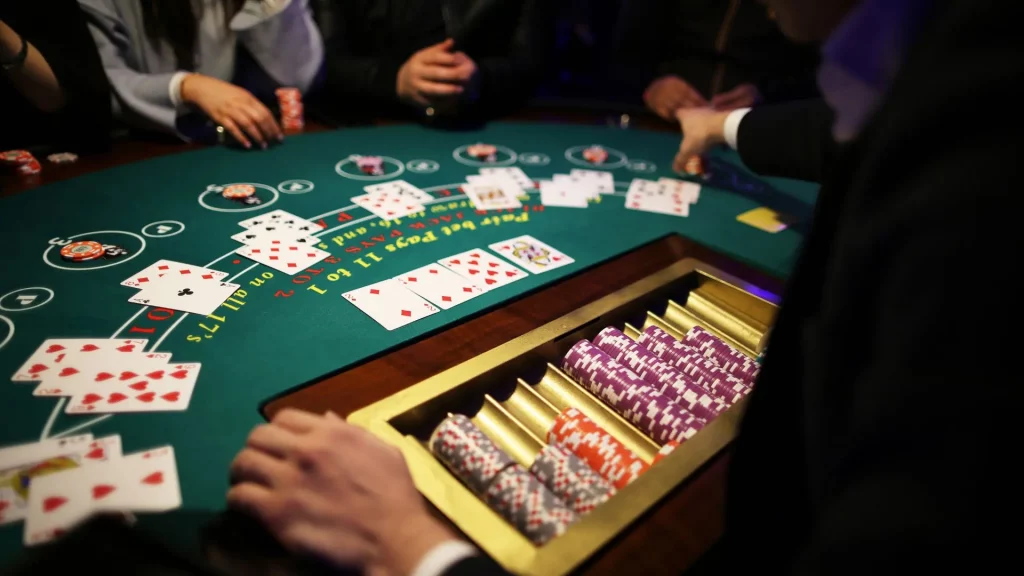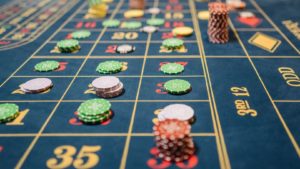
Be very careful about the gambler’s fallacy, whether in investing or gambling, or even in everyday life. The gambler’s fallacy is the situation: When we flip a coin three times in a row and we have tossed heads, we usually think: “It’s been three heads in a row, so it should be tails next time!” Do you also think the probability of tails is higher ? Well, I can tell you very bluntly, this is the gambler’s fallacy.
In fact, the probability of the next appearance of heads or tails is still equal to half! Wondering why? Keep reading through this article and we’ll tell you what the gambler’s fallacy is? Why is the gambler’s fallacy important? How to avoid the gambler’s fallacy?
Content Index
What is the gambler’s fallacy?
1.The origin of the gambler’s fallacy:Monte Carlo Casino

Before explaining what the gambler’s fallacy is, we should first understand what is an independent event? An independent event is that the result of event A does not affect the result of event B, so the two events A and B are independent events. The probability of an independent event is not affected by any previous or subsequent events.
On August 18, 1913, a wonderful incident occurred in the Monte Carlo Casino in Monaco. At that time, because of the more than ten consecutive blacks, everyone agreed that since they have been blacked so many times, they will definitely be opened next. Red, I didn’t expect that it was still black until the 26th time, and finally it turned red on the 27th time. After this incident, many gamblers lost their money at the time, and it also became a classic case in statistics (Monte Carlo incident), which is why the gambler’s fallacy is also called Monte Carlo fallacy.
2.Gambler’s Fallacy Key Takeaways
The gambler’s fallacy is a fallacy of chance. It is common in gambling, but it can also happen in daily life. Claiming that because an event has occurred many times, it is unlikely to happen next; or that because something has not happened for a long time, there is a high probability that it will happen next.
Thinking like the Gambler’s Fallacy is incorrect, because each event should be independent and its outcome has nothing to do with past or present events.
Why does the gambler’s fallacy happen?

We can assume the following situation: Jason is very good at and likes to play blackjack, and in his many years of gambling experience, he has noticed a pattern: usually after the fifth losing streak to win the jackpot. And today is Jason’s fifth day on a losing streak, so he walks into the casino with a smile, knowing that today is the day he’ll win the jackpot. But today, he lost a fortune. Jason started to doubt himself constantly, he always wins on day 5! Jason used the patterns he saw in his gambling experience to convince him that he had a good chance of winning at blackjack this time around. But in fact, there is no causal relationship between the two. Jason’s past losing streak has nothing to do with his likelihood of ending this losing streak, which is the result of the gambler’s fallacy.
The gambler’s fallacy actually stems from our tendency to assume events, if a random event happened many times in the past, then it will happen more or less in the future, and one of the reasons for this is that we don’t like randomness , but random events are the product of chance, which makes it unpredictable, exciting and challenging for some, but disturbing for most. So we try to rationalize and reinterpret random events to make them seem predictable. The same principle is also applicable to slot machines. The chance of turning out four consecutive patterns is actually many times different from the chance of turning out five consecutive patterns. However, gamblers often think that they will hit five soon after winning four. You can win big very quickly, so you don’t want to stop, and you often lose big money because of it.
1.personal effect
The gambler’s fallacy can lead to suboptimal decisions, and part of making an informed decision about a future event is considering its causal relationship to past events. In other words, we link past events with future events.
When the two events do have a causal relationship, for example: when we notice dark clouds in the sky, it is reasonable to assume that it will rain next, so we decide to bring an umbrella. Because of past experience, dark clouds are a good indicator of rainfall because there is a causal relationship between them.
However, this can be problematic when two events are not causally related but we think they are. This is because we base our decisions on future events on false information. With it comes a deviated view of probability, and an ignorance of the true cause of events.
2.systemic impact
In any organization or institution, there are complex decision-making processes. Institutions make decisions that often take into account economic principles, but none of these take into account the reality that humans cannot function in a fully rational way. While organizations want to make decisions that reflect economic values and goals, those decisions are made by individuals. Individuals are not only affected by logic, sometimes decision makers in a company have to make quick decisions that will affect the rest of the organization. Under constraints such as time, the choices made may only satisfy oneself, rather than the best choices for the company’s goals.
The gambler’s fallacy in general can adversely affect institutions and professions for accurate prediction and causal analysis. When an institution fails to distinguish the statistical independence of random events, one can look for unrelated events or people identified as the explanation. Example: A physicist, unable to discern the random motion of particles, came up with a pattern from several past motions to create a scientific law that was quickly overturned.
Why is the gambler’s fallacy important?

The gambler’s fallacy can disrupt our predictions of probability and the decisions that come with it. So in order for you to be smarter and not fall into the abyss of losing money, it’s important to understand the gambler’s fallacy. The gambler’s fallacy affects not just those who like to gamble, it affects all of us when we assess the probability of future events based on similar past events.
How to avoid the Gambler’s Fallacy?
The Gambler’s Fallacy is the idea of a cognitive bias, but on the bright side, being aware of the Gambler’s Fallacy and randomness can help us avoid falling victim to it.
To dispel the idea of this cognitive bias, we need to discuss and recognize the causal independence of events, but that’s not so easy, especially when we have a vested interest in their relationship, so being in the gambler’s fallacy may affect In decision-making situations, it is best to stop and ask yourself this question: “Do past events affect future events, or does this happen randomly? If events are random, past events do not affect future outcomes, For example: a coin toss or a roulette ball on the wheel.”
Just like when someone has won several games in a row, it doesn’t mean they’re doomed to lose next time; similarly, if they’re on a losing streak, it doesn’t mean they won’t win next time.
Gambler’s Fallacy Practical Examples
1.Case number one

Financial analysis is also deeply influenced by the gambler’s fallacy. Usually investors tend to hold depreciating stocks and sell appreciating stocks. Common psychological guesses, such as: Investors see a rising stock as a sign of an imminent collapse, so usually the next step for investors is to sell it. This is where the gambler’s fallacy comes into play, because investors are making decisions based on the probability of random events (stock prices) based on similar past experience (the trend of the stock’s previous price). We can find that the two are not necessarily related, because the past price trajectory itself does not represent the future trajectory will be the same.
2. Case number two
The very famous Monte Carlo incident occurred on August 18, 1913, when the red and black roulette table in the Monte Carlo casino opened more than ten consecutive blacks at the beginning. Booing, everyone agrees that since they have already played black more than a dozen times, there must be a high chance of red opening next, right? So everyone took out their wallets and bet red, but they still called black in the end. I don’t believe in evil. On the contrary, everyone continued to bet more and more actively, and the amount was even more and more. In this way, the number of consecutive black bets had reached 20. At this time, the gamblers were even more red-eyed. The result is unbelievable. , the 21st, 22nd, and 23rd times are still black. At this time, some people even bet all their belongings in red, and the result is still black. This has made many gamblers lose their money. However, the continuous blackout seems to have become a curse, and it is not over yet. On the 24th, 25th, and even the 26th time, it was still black, and finally on the 27th time, the rolling ball in the roulette finally landed in the red grid that everyone expected.
Online Game Recommendation︱JB Online Casino
Are you are looking for a safe online casino to play ? Congratulation! You found it! Click the button below to go to JB Online Casino, the most popular website to play games.
JB Online Casino has been strictly supervised by casino professionals in terms of safety, bonuses, game selection, payment methods, etc., and is an online casino operator with a legal license.
Before starting a game, let’s claim the bonus to enjoy the whole new casino experience!
Gambler’s fallacy | Remarks area
Gambler's fallacy:A gamble that keeps you losing money

Be very careful about the gambler's fallacy, whether in investing or gambling, or even in everyday life.Keep reading through this article and we'll tell you what the gambler's fallacy is? Why is the gambler's fallacy important? How to avoid the gambler's fallacy?
Course Provider: Organization
Course Provider Name: JB CASINO
Course Provider URL: https://blogjb3919.com/
5
